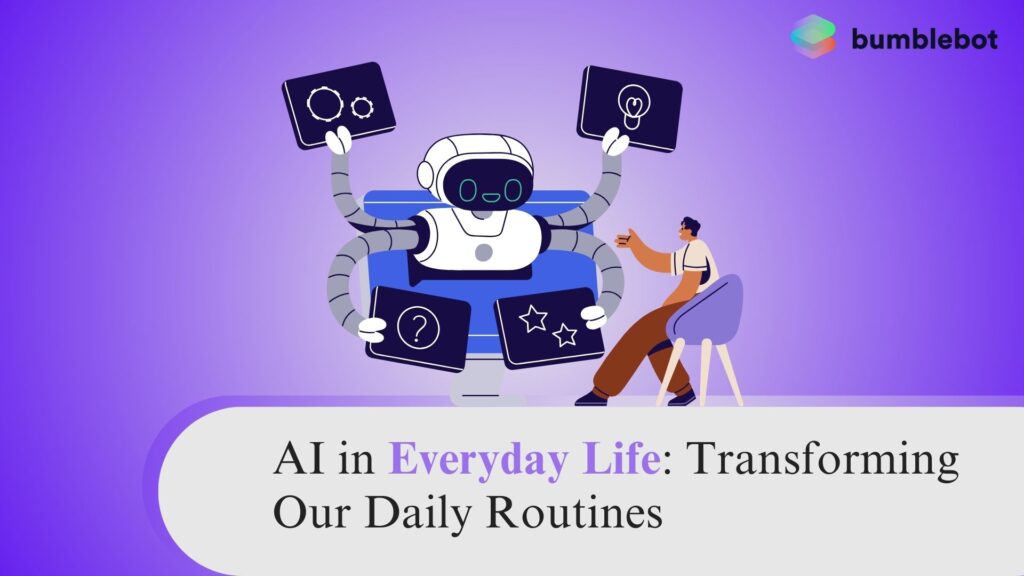In today’s digital world, AI isn’t just a trendy term anymore; it’s deeply ingrained in our daily lives. What was once only seen in sci-fi movies is now device experience monitoring, the backbone of numerous tools and devices we rely on daily. AI isn’t just useful; it’s essential for navigating the intricacies of modern life.
AI at Home: Smart Living
Smart Home Devices
From smart thermostats that change temperature as we like to lights that learn our schedule and brighten our homes when needed, AI has made home automation real. These gadgets use AI to study what we do and make tasks easier, like keeping us comfy and saving energy.
Virtual Assistants
Voice-activated assistants like Alexa, Siri, and Google Assistant can do lots of stuff! They can remind you of things, play your favorite tunes, and tell you the weather. They understand what you say and do what you ask, device experience monitoring, making tech feel easy and natural.
AI on the Go: Transportation and Navigation
Autonomous Vehicles
AI-powered autonomous vehicles, still in development, offer a future where cars can drive themselves, making roads safer by reducing human errors. Apps like Google Maps already use AI to analyze live traffic data and recommend the fastest routes.
Ride-Sharing Apps
Uber and Lyft use advanced AI to set ride prices, reduce wait times, and pair passengers with drivers efficiently. This clever system boosts effectiveness and ease of workplace experience, has transformed city travel.
AI at Work: Enhancing Productivity
Automated Customer Support
Transform these lines into how AI chatbots and virtual assistants manage customer questions automatically, giving fast answers to common queries. This boosts customer satisfaction and frees up human staff to tackle tougher problems.
Workflow Optimization
AI tools automate repetitive tasks like data entry, schedule management, and email sorting. They make work easier, boost productivity, and lower the chance of mistakes.
AI in Health: Personal and Public Healthcare
Wearable Health Monitors
Fitness trackers and smartwatches use AI to keep tabs on your health, like heart rate, sleep, and activity levels. With this data, user experience management, you can make smarter choices about your well-being and how you live.
AI in Medical Diagnosis
User experience management, and AI algorithms can speed up and improve the accuracy of analyzing medical images compared to humans. For example, IBM Watson helps diagnose diseases like cancer faster, potentially saving lives by catching them earlier.
AI in Entertainment and Media
Personalized Recommendations
Streaming platforms such as Netflix and Spotify utilize artificial intelligence to study your likes and habits, suggesting content tailored just for you. This way, they keep you hooked by delivering what you love.
Video Games
AI makes gaming better by creating smart NPCs that react cleverly to players’ moves, adding excitement and variety to the game world.
AI in Shopping: Personalized and Efficient
E-commerce Optimization
AI tools use customer data to give personalized shopping suggestions and predict trends for better inventory management, improving both the shopping experience and supply management for businesses.
Virtual Fitting Rooms
AR and AI make virtual fitting rooms possible. Customers can try on clothes using just a camera, which makes online shopping easier and reduces returns.
Conclusion: The Future is Now
AI isn’t just for the future; it’s happening now, making our lives easier every day. Companies like Bumblebot Technologies lead the way, in device experience management, creating AI solutions that are easy to use and fit right into our daily routines. Their goal is to make technology work for us, making life better and more efficient.
AI keeps getting smarter, blending seamlessly into our daily lives. Picture a tomorrow where every move you make is backed by clever, predictive tech. Dive into the future now with Bumblebot Technologies and see how AI can revamp your day-to-day.
To Know More – The Ultimate Guide to Getting Started with Tasky in 2024


